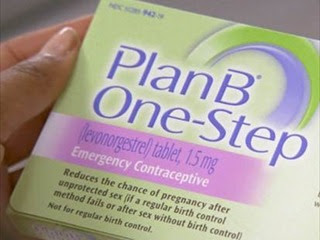 Statement from The National Campaign to Prevent Teen and Unplanned Pregnancy
Statement from The National Campaign to Prevent Teen and Unplanned Pregnancy
WASHINGTON, Dec. 7, 2011 /PRNewswire-USNewswire/ — Today, U.S. Department of Health and Human Services (HHS) Secretary Kathleen Sebelius did not accept the recommendation of the Food and Drug Administration to make Plan B One-Step emergency contraception (EC) available without a prescription to those under 17. Consequently, Plan B One-Step will remain available without prescription only to those 17 and older, and only behind the pharmacy counter (so that age can be verified). Those 16 and younger will still need a prescription to get emergency contraception.
In response to this ruling, Sarah Brown, CEO of The National Campaign to Prevent Teen and Unplanned Pregnancy issued the following statement:
“This was undoubtedly a difficult decision for all involved. Making emergency contraception easily available to young teens and pre-teens may have raised concerns among parents and others as well. Even so, the decision is in conflict with the fact that there is simply no evidence to suggest that making contraception, including emergency contraception, available to teens encourages them to begin having sex, to have sex at younger ages, or to have more sexual partners.
“I am disappointed at the lost opportunity to increase access to Plan B One-Step EC for women of allages. Had HHS approved over-the-counter availability of this method for those 16 and under, there would have been no need for pharmacists, who are available during limited hours, to check the age of anyoneseeking EC. This change would have made EC far more available to women of all ages—which on balance is a wise path—especially given that the vast majority of unplanned pregnancies and abortions in the United States are among women in their 20s and 30s. Simply put, I am particularly disappointed that the ruling today will prevent all women from getting emergency contraception with fewer hurdles to overcome.
“It is also important to add that easing access to contraception, including emergency contraception, is an important public health goal. The long term objective should continue to be improving access to all methods of contraception.”

